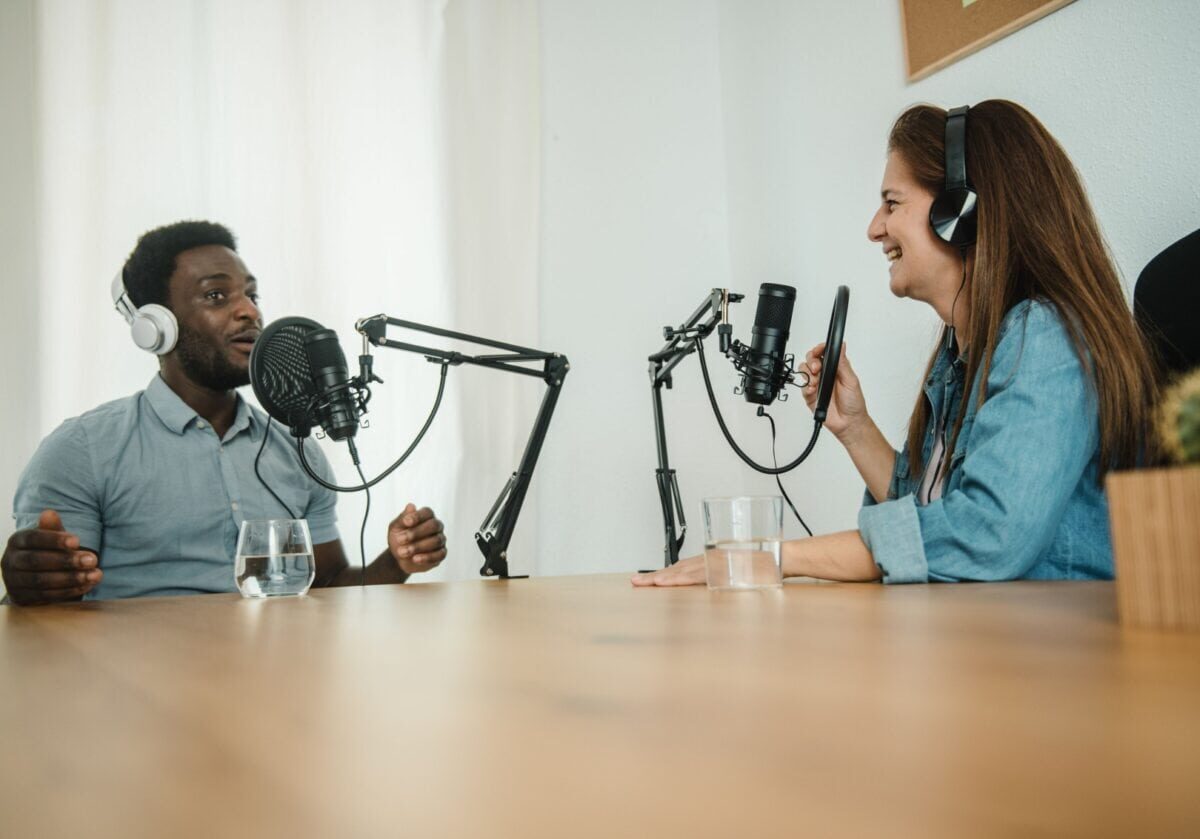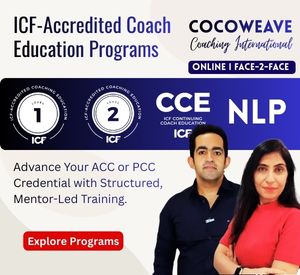You likely spend time scrolling on local news sites, exploring articles and interviews focused on local businesses, which include insights from local experts on a variety of topics. But what if you could be the expert quoted in the news? What if you were called upon to share the benefits of coaching with your community?
Media coverage can range from an article in a local paper to a post on a business blog, a mention in a podcast, or a TV interview. And this exposure can play an important role in growing a coach’s practice — and advancing awareness about coaching in general.
Let’s look at how you can achieve this.
Establish Yourself as a Credible Coaching Resource
Typically, media coverage won’t just be a profile on you and your practice. Rather, you are much more likely to find journalists eager to include you in their coverage if you can offer insights in the form of quotes from interviews, contributed articles you write to share your insights, case studies, or commentary on a timely topic relevant to your coaching specialty, as well as that particular outlet and journalist’s focus area. When you earn this coverage, it’s important to make sure it is tied to broader topics of interest and remains nonpromotional.
How Media Coverage Builds Credibility
When journalists include you in their coverage, their audiences take note of your commentary, and it implicitly positions you as a credible source on the topic. You become a known, trusted professional who they may remember and turn to when they encounter a difficulty. It also signals to other reporters that when they have a question about a topic tied to your area of focus, they can turn to you for professional insight that will add value to their coverage. This can lead to opportunities to earn even more positive media coverage!
Media Exposure Elevates the Coaching Profession
Not only does positive coverage build your credibility for additional future media opportunities, but it’s also an opportunity to demonstrate the value of the coaching profession and elevate your practice’s reputation. (Though it’s important to remember that earned media is not about promotion, but rather, sharing expertise.
Use Media Exposure to Reach New Clients
Earning media opportunities like this takes effort and persistence, but your efforts to share your insights can have a truly meaningful impact over time as you build a body of thought leadership.
Reaching a Wider Audience
In addition to demonstrating your expertise and raising awareness about coaching, positive media coverage demonstrates your professional capabilities to a wider audience — many of whom may be reading on this topic because they have a challenge related to it themself. Reading your coverage may prompt them to consider working with a coach or reaffirm pre-existing considerations. Who better to work with than the coach who just demonstrated their authority on this very topic?
Why Earned Media is More Powerful Than Ads
While a TV ad can cost upwards of $10,000 for 30 seconds of airtime, earned media costs only the time and effort you put in to build relationships with journalists and provide your insights. Further, the value of this kind of earned coverage is even higher because audiences trust it more than advertising.
Expanding Awareness of Coaching
Sharing your insights as a coach may reach organizations or individuals who didn’t previously realize they could benefit from the help of a coach. Businesses may recognize a challenge they have and struggle to find practical ways to overcome it. The opportunity to learn how a coach like you supported a person or business with a similar challenge will resonate and may lead them to seek out your services.
Long-Term Benefits of Media Exposure
While you may sometimes get queries from prospective clients shortly after coverage releases, the real gains of media coverage for business growth take time. Consider: the next time someone is looking for a coach in your specialty, they will come across you more easily because of your media placements. Further, being cited as an expert by the media demonstrates your expertise. This will all help to make you more competitive when a client is deciding on a coach to work with.
Avoiding Negative Media Coverage
Contrary to the adage, not all publicity is good publicity. As coaching demand continues to rise, it has also become more common for those who do not understand coaching to question it. If you’re engaging with a journalist or reporter, research them before an interview, and look for biases or misconceptions about coaching in their prior coverage. Take the time to address and explain inaccuracies if they come up. Rather than answer questions you aren’t sure of, you can always tell a reporter that you would like to look into a matter further, or that you are not the best person to answer a particular question. Don’t participate in an interview without time to prepare, or without knowing what the reporter’s story is about.
Make Your Mark in the Media
Finding ways to leverage media opportunities can have great value for your coaching practice. Whether it’s an interview with a TV station or a short op-ed in your local paper, take advantage of opportunities to share the value of your work with others.
How Media Exposure Strengthens Connections
You may find new business opportunities and clients, connect with others in the coaching industry, or even strengthen your connections with current clients.
Media as an Accelerator for Growth
A deep understanding of media coverage can make a difference for your practice, so take some time to think about how you can generate it to your benefit. You may find that it becomes a key accelerant to growing your practice and connecting with new clients.
Disclaimer
The views and opinions expressed in guest posts featured on this blog are those of the author and do not necessarily reflect the opinions and views of the International Coach Federation (ICF). The publication of a guest post on the ICF Blog does not equate to an ICF endorsement or guarantee of the products or services provided by the author.
Additionally, for the purpose of full disclosure and as a disclaimer of liability, this content was possibly generated using the assistance of an AI program. Its contents, either in whole or in part, have been reviewed and revised by a human. Nevertheless, the reader/user is responsible for verifying the information presented and should not rely upon this article or post as providing any specific professional advice or counsel. Its contents are provided “as is,” and ICF makes no representations or warranties as to its accuracy or completeness and to the fullest extent permitted by applicable law specifically disclaims any and all liability for any damages or injuries resulting from use of or reliance thereupon.
Authors
Post Type
Blog
Audience Type
Experienced Coaches, External Coaches, New Coaches, Professional Coaches
Topic
Coaching Toolbox, Discover - Your Coaching Career
Related Posts
The Power of Active Listening in Meaningful Coaching: Why Active Listening is the Most Essential Coaching Competency
Of all the foundational coaching competencies identified by the International Coaching Federation…
Allyship in Action: Coaching as a Catalyst for Change
Allyship is often framed as a value or an intention. In practice,…
Grace Under Fire: Building Stress Resilience for Coaches and High Achievers
There’s a unique kind of pressure that lives at the intersection of…







